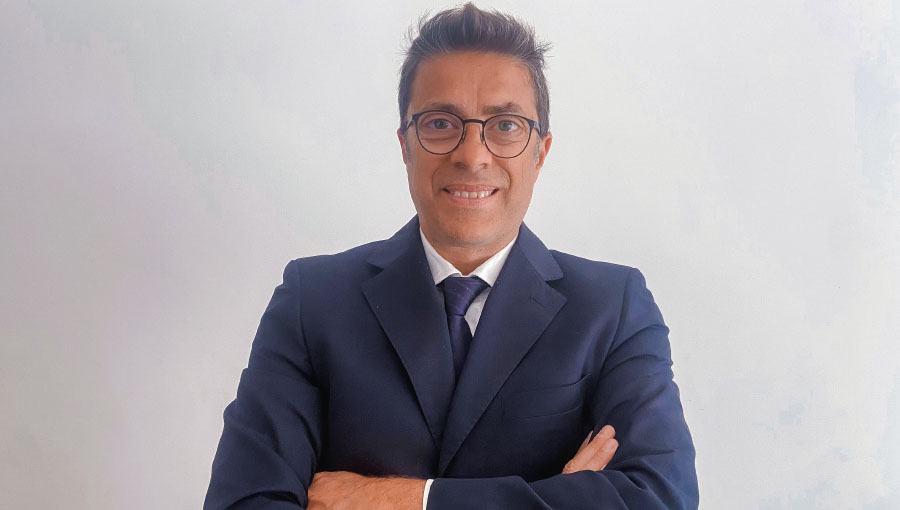JCU Welcomes Marketing Professor Thomas Aichner
Dr. Thomas Aichner is an Associate Professor of Marketing at John Cabot University in Rome, Italy. He holds a joint PhD in marketing from the University of Padova (Vicenza, Italy) and ESCP Europe Business School (Berlin, Germany), with the special mention of Doctor Europaeus. His research is primarily focused on country of origin, mass customization, e-commerce, social media, and disability/inclusion.
What is your first impression of JCU?
My impression is that JCU is a place that is strongly committed to growth and quality. During my first few weeks on campus, I met many motivated students who are open to critical discussions and eager to learn about marketing theory and practice. JCU seems to be a beautiful place for studying and inspiring conversations.
What is your teaching philosophy?
In my opinion, knowing marketing theories and understanding how to apply them in the real world is crucial for succeeding as future marketing executives. I use group work, group discussions, and case studies as well as more innovative methods such as gamification, online-based management simulations and working with real clients.
This leads to more out-of-class activities, for example, when students participate in marketing simulation and meet to discuss the results and performance of their company or to agree on the next round’s decisions. Similarly, when working on an advertising and promotions campaign, students must talk to potential customers, visit a point of sale, and prepare to pitch the advertising campaign to the client. In the end, my students should feel that they have the knowledge to tackle and solve real marketing problems with the tools provided in my class.
In July 2018 you were elected President of the Association of Invalid Civilians (ANMIC South Tyrol). How did you get involved?
I started volunteering for ANMIC South Tyrol when I was about 16 years old. Working with a nonprofit organization and positively affecting the lives of people with disabilities always gave me strong personal satisfaction. Whereas in business we try to increase profits, here the return on investment is measured in smiles. In my honorary capacity as President, I have the privilege to lead this organization with over 6,000 members and to execute projects that both I and my team believe will eliminate prejudices, strengthen disability rights, and improve the financial situation of people with disabilities.
Your research is primarily focused on country of origin, mass customization, e-commerce, social media, and disability/inclusion. What’s one finding that surprised you?
The results of a recent study carried out with colleagues from Berlin and Bolzano, Italy show that when a well-known company is involved in a scandal, this does not just hurt the company itself but can spill over to competitors and the general image of the company’s country of origin. For example, if a leading British food company admits it had sold expired products, consumers would also buy less from other British food companies and their attitudes towards products in general made in the UK would suffer, too. This means that – as a result of the scandal – a firm which did nothing wrong may sell less because consumers perceive companies or products originating from that specific country to be less trustworthy and of lower quality, respectively. In conclusion, companies bear much more responsibility than just for themselves, as their actions can affect competitors and even companies from unrelated industries.
Please tell us about a challenge you encountered in your professional career. How were you able to overcome it?
Johannes Haushofer, a Princeton University professor, wrote the now famous “CV of Failures”. In this CV he summarized everything that did not work out for him as opposed to our usual CVs that just highlight our successes. If I had to mention just one event from my life, it was probably a business idea I had a few years ago. Several friends and I were convinced it would be a brilliant and profitable idea. However, after about one year of intense work it turned out to be completely unsuccessful. Most of all, I felt sorry for those who invested in our idea and did not get the return they were hoping for. Luckily, the failure of the project did not affect our friendships and finally even led to other projects, for example to the publication of a children’s book about social inclusion.
What is your advice for a student who is thinking of studying Marketing at John Cabot?
The multinational and multicultural environment at JCU offers the perfect conditions to study marketing. Besides, understanding the role of culture, psychology, behavior, and perceptions are central to become an effective marketing manager. Learning about these issues is exciting and can be very surprising at times. Whoever is joining JCU’s marketing program should be prepared to think strategically, work with data, and develop creative ideas. The fact that our international professors and lecturers have significant practical experience both in Italy and abroad will add tremendously to this learning experience.






